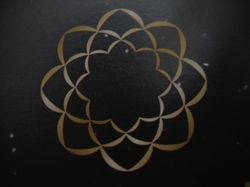Hitman said:Doob, I started to live by the "Good Friends" way. That they are my good friends because they cause me to chant for Kosen Rufu. They cause me to chant because they are so confused and oblivious to cause and effect. ...so when I feel enraged towards others I'm going to chant until I overcome this Karma. I think of the evil doers and I say "Thank you good friends for you have brought me closer to enlightenment and you have made my path to enlightenment quicker. You help me to chant and devote my time to the Gohonzon.
Thanks for the Encouragement TomDoob.
I thank everyone on this thread for you are my true BEST FRIENDS and together we will conquer all hardships and rise to the top!
I told you you were a Buddha! What you said is the thinking of a Buddha Hitman! Congratulations!
But you transposed the story of Devadatta and Shakyamuni to one of Devadatta and Nichiren. Just so you know...

 Not only are you a great friend Baccas, Welcome to the Family! I knew you would be chanting sooner than later. Goooo Baccas!
Not only are you a great friend Baccas, Welcome to the Family! I knew you would be chanting sooner than later. Goooo Baccas! 


